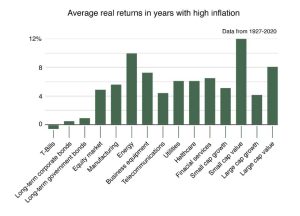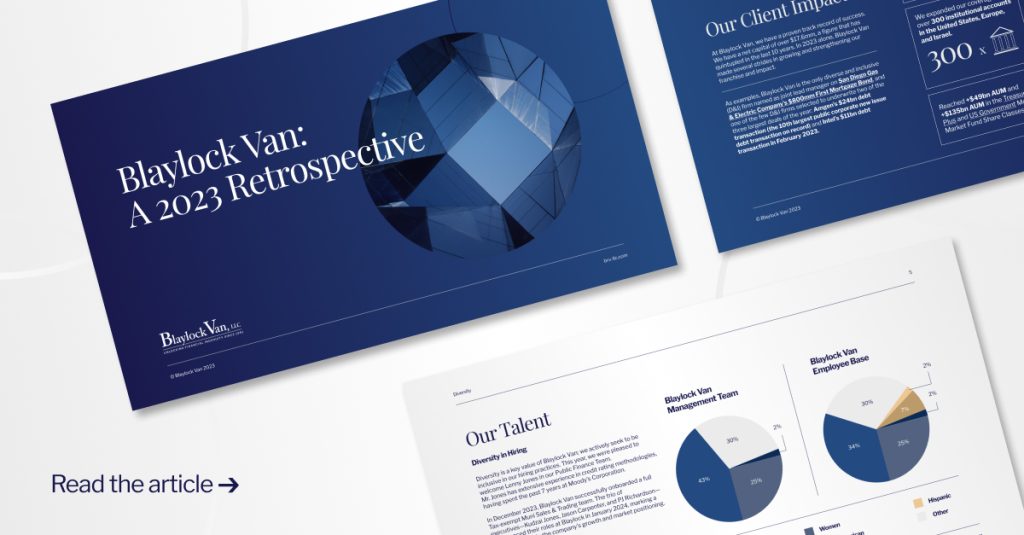Which stocks to pick when fixed income doesn’t do the trick?
Executive Summary: Inflation is reaching new highs as the economy recovers from the pandemic. With declining purchasing power, investors analyze new strategies to preserve value. An indiscriminate mass migration to variable income may be as dangerous as sitting idly by the (fixed-income) sidelines. Investors should wonder which types of stocks will deliver returns in times of inflation, and who will be the champion in each subgroup.
As we have forecasted in our previous Corporate Bonds post from last month, the Fed was going to reduce its bond-buying program before December 2021. Jerome Powell recently said: “If a response is called for, we will not hesitate.” 1 The Fed announced tapering the program by $15 billion, starting now, in order to curb inflation. After a relatively stable decade, inflation has surged to 5.4% y-o-y as of September. 2 It is at its highest since 2008, due mostly to food, housing, and gas prices. 3
It is important to look back at lessons from 2010 when considering investments for 2022. Coincidentally, both years are two years apart from major catastrophic 4 events which led to 5% inflation spikes. The market rally of 2010 is not expected to repeat in early 2022. 5 One wonders if past 2010 winners will win again in 2022. Past winners include Target, Walmart, Dollar Tree, Home Depot, NextEra energy 6 . They also thrived in 2020, but will they thrive in a 2022 high inflation economy?
High inflation impacts rates, which affect fixed-income products. A bond’s price is calculated on its spread to basic Fed rates. In the absence of any corporate changes, bond prices fluctuate as Fed rates move up or down 7 . Investors then avoid fixed-income investments and gravitate towards variable-income, looking for higher nominal returns.
Variable-income performance depends on the sectors. Moving from fixed to variable income without any criteria can be dangerous as portfolios can become unbalanced, and inflation impacts some stock sectors more than others. 8 As one can see on the graph below, small cap (Etsy is one of the top stocks picks this week) and large cap value stocks are favored over “growth stocks”, as they rely less on the next quarters’ earnings. As the latter also depend more on future investments, inflation can take a toll on cost of capital (cost of debt primarily, but then also cost of equity). High inventory firms should also feel the pain with changes in demand patterns when consumer real wage values decline.

Source: Wall Street Journal Data 9
The figure above shows data from 1927 until 2020. History favors small and large cap, together with energy, as the real winners. Dividing by subsectors, a transversal analysis should include real estate and commodity firms. 10 Let’s dissect sector by sector how that should play out in the coming months: 11
Although blessed by stellar growth across the board in the past decade, real estate nominal prices should continue to surge, as inflation erodes real value. One force that might act to hinge said growth are the Fed rising rates in 2023. The Fed’s tapering might impact value even earlier.
Commodities are quoted in international prices in a global market. The fungible product by excellence, commodities are replaceable by a similar unit without any difference. There is no brand equity in commodities by definition. Hence, prices fluctuate purely according to market supply and demand. When the currency in which these prices are traded deflates, nominal commodity prices will rise, even if demand and supply remain constant. Thus, energy and mining companies might get a boost (NextEra Energy is one of the top picks of the week, as they performed well in 2010 and 2020), while brand food retailers may feel the pinch when suppliers raise prices and consumers balk away to cheaper products. Costco is one of the top picks this week 12 . Costco is a retailer that offers value over brand equity, and thus should see revenue spikes, at least comparable to its loftier peers.
Consumer products in general might feel that higher prices will reduce demand for their products or redirect buyers to cheaper alternatives. It will be interesting to see how that will play out with high end tech firms like Apple, which have strong brand equity, and have resisted previous crises (like after 2010) posting solid gains in sales. Analysts forecast that Apple will continue to grow, and share prices are expected to rise 12% in the next year. 13
In brief, as much as one should try to carefully migrate from low-yield investments to variable income products, this move must be well advised. Equity is riskier, but it can also destroy more value than fixed income. Look for small cap value stocks, as well as energy, commodities, and real estate exposure. Avoid retailers with brand equity. Those should suffer and lose some of their margins. But once again, Apple shares seem to resist all fundamental logical changes, even when historical and fundamental analysis would tell you otherwise…

**Disclaimer**
This article was prepared exclusively for Blaylock Van, LLC. Links are solely intended for convenience and are not intended to be advertisement whatsoever. Linked sites are not under the control of Blaylock Van, LLC and Blaylock Van, LLC is not responsible for the content of any linked site or any link contained in this article. Blaylock Van, LLC does not endorse companies, or their products or services, to which it links. If you decide to access any of the third-party sites linked to this site or article, you do this entirely at your own risk. This document is confidential and has been prepared for informational purposes only. This document is not to be construed as a recommendation, an offer to sell or a solicitation of an offer to buy any securities. Any dissemination, distribution or reproduction of this document is strictly prohibited without the consent of Blaylock Van, LLC. The information herein is obtained from sources deemed reliable, but its accuracy and completeness cannot be guaranteed, and is subject to change without notice.
Bibliography
[1] Powell Says Fed Patient on Hikes, Can Act on Inflation if Needed. (2021, November 3). Retrieved November 4 2021, from https://www.bloomberg.com/news/articles/2021-11-03/fed-to-start-tapering-asset-buys-by-15-billion-later-this-month
[2] U.S. Bureau of Labor Statistics (2021, October 13). CPI for all items rises 0.4% in September; food, shelter among indexes rising. U.S Bureau of Labor Statistics. Retrieved November 3, 2021, from https://www.bls.gov/cpi/
[3] Why is inflation rising right now? (2021, October 13). Retrieved November 3 2021, from https://www.forbes.com/advisor/investing/why-is-inflation-rising-right-now/
[4] https://www.federalreservehistory.org/essays/great-recession-and-its-aftermath
[5] Stock Market Outlook 2021: Bull Market, But Buckle Up. (2021, February 5). Retrieved November 3 2021, from https://www.morganstanley.com/ideas/stock-market-outlook-2021
[6] https://money.usnews.com/investing/slideshows/7-stocks-that-soar-in-a-recession?slide=9
[7] Bonds and interest rates. Bonds and Interest Rates | FINRA.org. (n.d.). Retrieved November 4, 2021, from https://www.finra.org/investors/learn-to-invest/types-investments/bonds/bonds-and-interest-rates.
[8] Deflating your inflation fears. (2021, October 19). Retrieved November 3 2021, from https://www.wsj.com/articles/deflating-your-inflation-investing-fears-11635519805
[9] Id.
[10] Conerly, B. (2021, July 2). The industries that will be helped-and hurt-by inflation. Forbes. Retrieved November 4, 2021, from https://www.forbes.com/sites/billconerly/2021/06/29/the-industries-that-will-be-helped-and-hurt-by-inflation/?sh=223599365fe3.
[11] https://www.yahoo.com/now/11-best-long-term-stocks-132557309.html
[12] Id.
[13] https://money.cnn.com/quote/forecast/forecast.html?symb=AAPL#:~:text=Stock%20Price%20Forecast,the%20last%20price%20of%20151.51.




